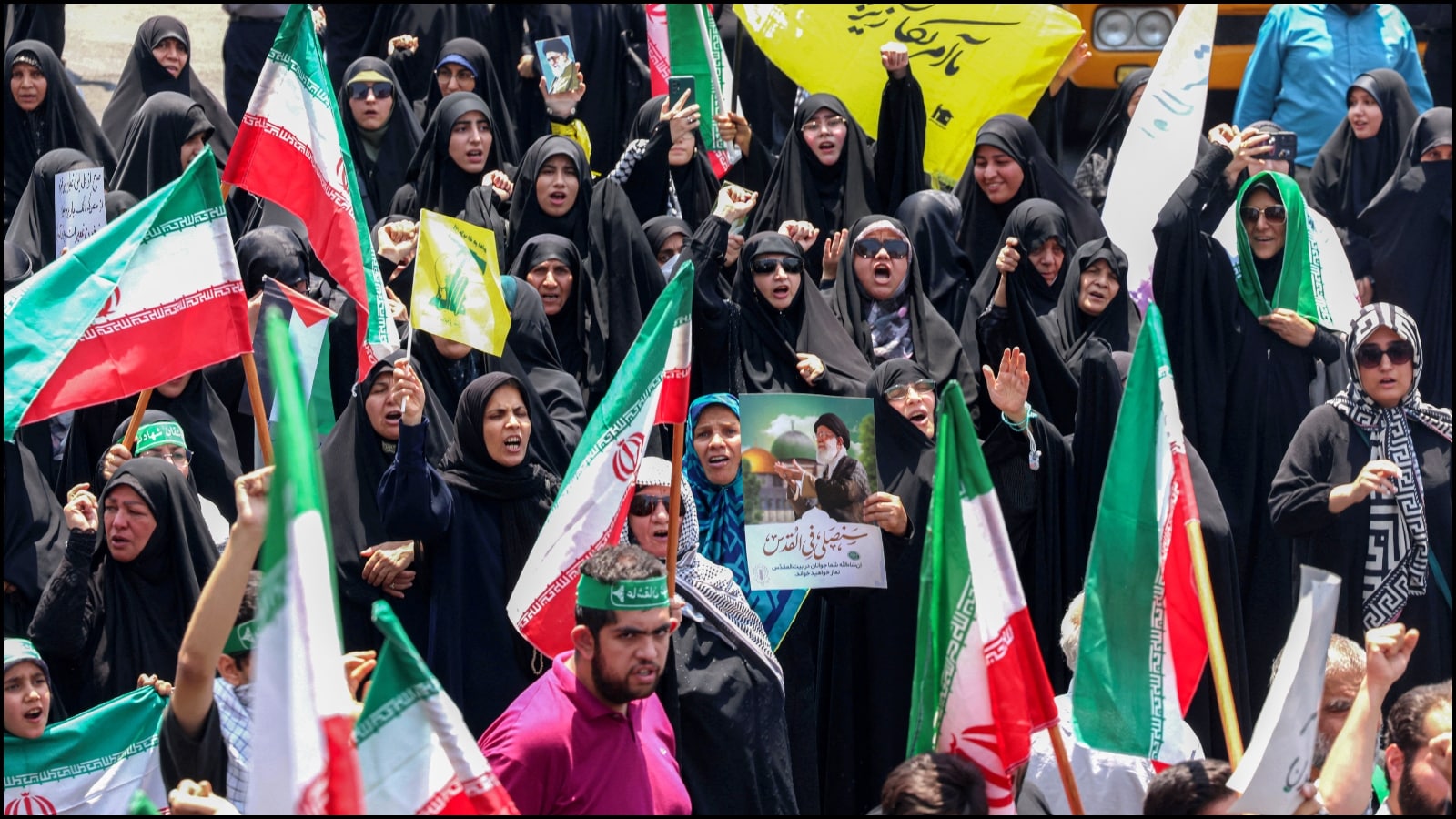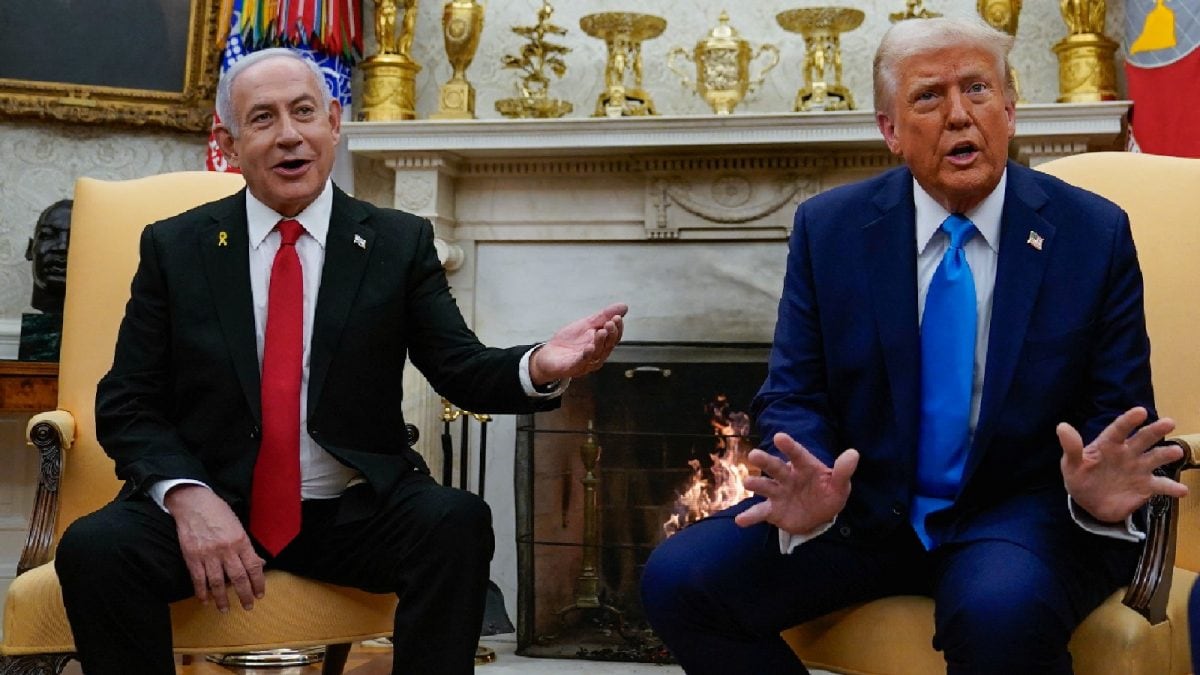ARTICLE AD BOX
Last Updated:June 13, 2025, 11:13 IST
Israel said Iran was boosting its military might, posing a direct threat. The strikes aimed to counter what Israel called an existential danger from Iran’s nuclear programme

Israeli Prime Minister Benjamin Netanyahu said the attacks aimed to cripple Iran’s nuclear weapons programme. (AP/File)
In a major escalation, Israel launched a military offensive against Iran on Friday, targeting nuclear and military sites as part of an operation codenamed ‘Rising Lion’. The Israel Defence Forces (IDF) confirmed the completion of the first phase of the strikes, which reportedly killed top Iranian military officials, including Revolutionary Guards Commander Hossein Salami and Army Chief Mohammad Bagheri, along with several senior nuclear scientists.
Israeli Prime Minister Benjamin Netanyahu said the attacks aimed to cripple Iran’s nuclear weapons programme, including the Nantanz enrichment facility and ballistic missile infrastructure, calling the operation essential for Israel’s survival.
Why Was The Operation Necessary For Israel?
The necessity for this operation, as stated by Israel, is rooted in its national survival, which was perceived to be under threat due to Iran’s nuclear advancements. Israel claimed that Iran had accumulated enough uranium to produce nine nuclear bombs and was on the verge of developing nuclear weapons.
Additionally, Israel alleged that Iran had been increasing its military power, posing a direct threat to Israeli borders. Hence, the operation was deemed critical to prevent potential existential threats from Iran’s nuclear programme.
Following the attack, Israel closed its airspace and declared a state of emergency amid fears of retaliatory strikes from Tehran. Prime Minister Netanyahu expressed hope for support from the US administration. However, US Secretary of State Marco Rubio clarified that the US was not involved in the attack but assured the safety of US forces in the region. In response to the Israeli action, Iran has threatened missile and drone attacks on Israel.
Netanyahu described the country’s strikes on Iran as a “highly successful" opening move. In a video statement, he praised the operation and signaled that further attacks were likely, stating, “With God’s help, we will accomplish much more."
“We struck at the heart of Iran’s nuclear enrichment programme. We targeted Iran’s main enrichment facility at Natanz… We also struck at the heart of Iran’s ballistic missile programme," he said, noting that the offensive also included strikes on Iranian nuclear scientists “working on the Iranian bomb."
The strikes triggered a nationwide state of emergency in Iran. Explosions were reported in several regions, including Tehran, Kermanshah, and Lorestan. Emergency responders were deployed as Iran’s military was placed on high alert amid growing fears of a wider regional conflict.
In a strongly worded statement, Iran blamed the United States for enabling the Israeli offensive. The Iranian foreign ministry said the attacks would not have occurred without US approval and warned Washington of serious consequences for what it called complicity in Israel’s “reckless aggression."
Iran’s Supreme Leader Ayatollah Ali Khamenei also issued a stern response, condemning the attacks as evidence of Israel’s “malicious intent." He vowed that the country would respond forcefully, promising that Iran’s armed forces would ensure Israel faced severe retribution. “A bitter and painful fate awaits the Zionist regime," Khamenei warned.
- Location :
Israel
- First Published:
News world Israel Strikes Iran: What Is Operation 'Rising Lion' And What Are Its Objectives?



.png)
.png)
.png)
















 1 day ago
6
1 day ago
6









 English (US) ·
English (US) ·